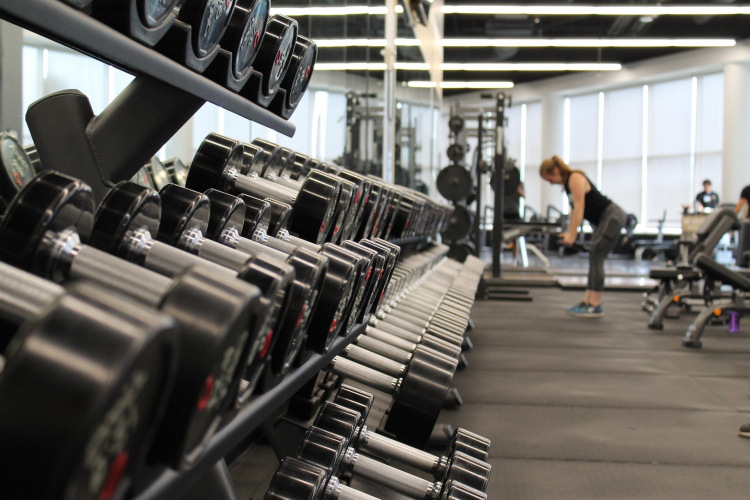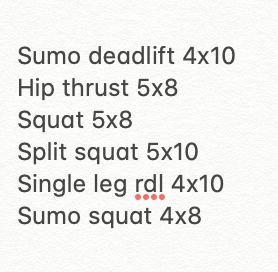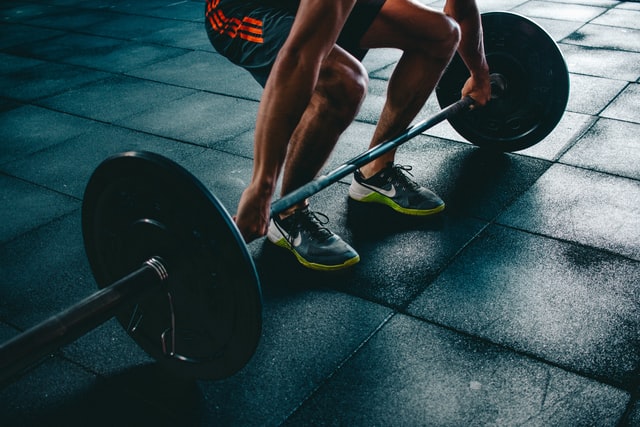Going to the Gym For Dummies

Make a Plan
Before you start lifting, you need to be informed in order to train effectively and make sure you don’t injure yourself. Watch YouTube videos to make sure you know how to perform an exercise with correct form and to get some inspiration for your first workouts. Also, it helps to workout in front of a mirror or record yourself the first couple of times, that way you can check your form against the pros.
Write down a plan in your notes of what exercises you’ll do with the sets and reps included. For example:
Image Credit: Fanny TlusczcGym Intimidation
Some people experience gym intimidation more than others. For this, wearing good headphones to zone yourself out is a good tip, that way you can focus on yourself and not worry about others. Another useful tip is wearing a hoodie; although this does not seem like it would make a difference, it really helps to make you more comfortable. A hat also helps you to focus more on yourself.
Remember that, just like you are, everyone else is in the gym for themselves, to work on themselves; no one is there to judge you. To beat gym intimidation, going into the gym with a plan, knowing which equipment you will use helps to not wander around and stress about what to do next.
Diet is Key!
Diet is just as important, if not more important, than your workouts. To see a difference according to your goals you need to eat according to your goals. If your goal is to put on muscle, eating for growth should be your goal. For this you need to be in a caloric surplus, however, this does not mean eating loads of fast food in order to be in a surplus. The goal is to eat mostly clean foods, some great clean foods to gain weight include nuts and beans; chick peas in particular are very cheap and filling. If your goal is to shred some body fat, you need to be in a caloric deficit, it’s that simple. Genetics will play a role in what kind of muscle you can put on, but if you're burning more calories than you're eating you'll lose weight, and if you're eating more than you're burning you'll gain, genetics or not.
Deadlift. Image Credit: Victor Freitas/UnsplashRecovery is Essential
Recovery is equally as important as training hard. Gains are actually made when you rest; when you lift heavy weight, you push your muscle to a point where it tears and it needs to rest in order to rebuild the same muscle bigger and stronger, this is why eating enough protein is essential too. Getting a good 8 hours sleep is necessary as well.
The concept of progressive overload is important to increase strength, build muscle overtime and avoid hitting a plateau. This means increasing the intensity of your workouts by either increasing your weight, decreasing your rest time between sets, increasing time under tension, etc.
The lifts that will make the most difference are compound lifts; lifts that require more than one muscle to work. For example squats, deadlifts, bench press; think of workouts where you're moving a large portion of your body. These are the lifts you need to prioritize; it is recommended to do these at the beginning of your session and end with accessory exercises. Accessory exercises complement your compound moves, for example, bicep curls and calf raises.
Dedication is Key
Although this is true, dedication > motivation. Motivation is what gets you going, but what keeps you going is dedication. You may be motivated for weeks straight but motivation comes and goes and it is necessary to stick to your habit of going to the gym and be dedicated to keep seeing results.









